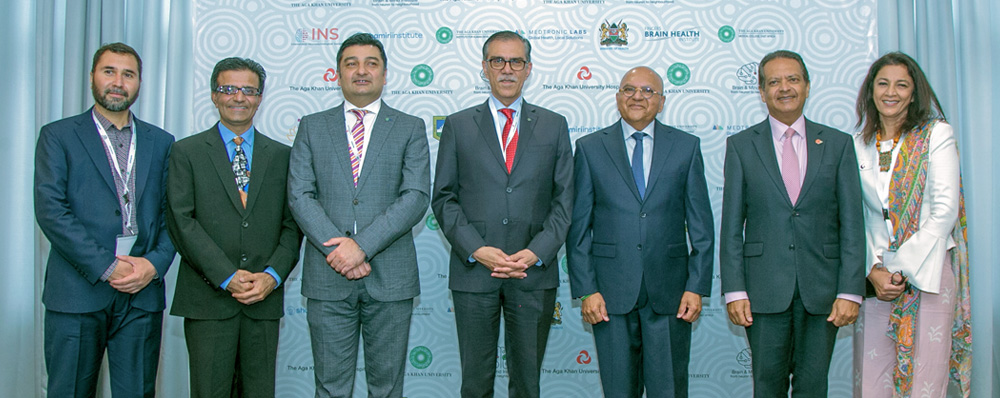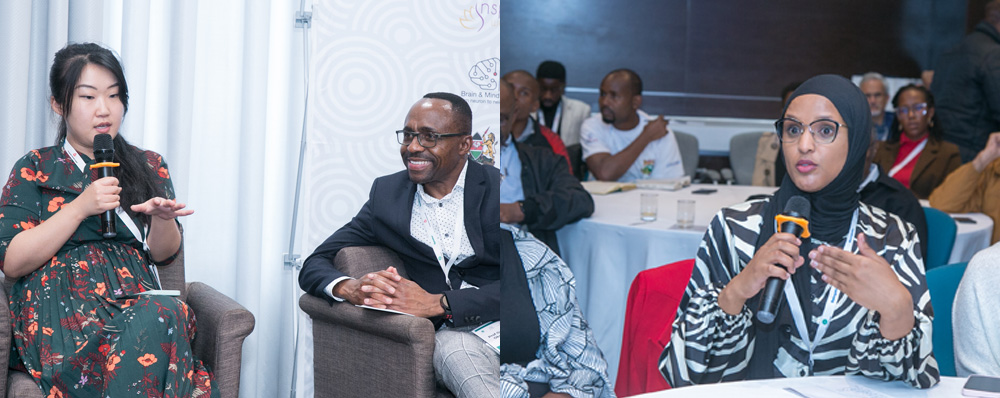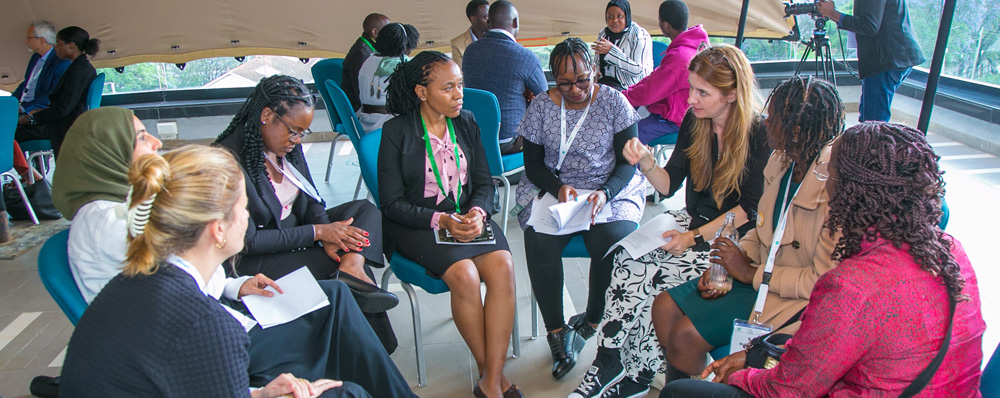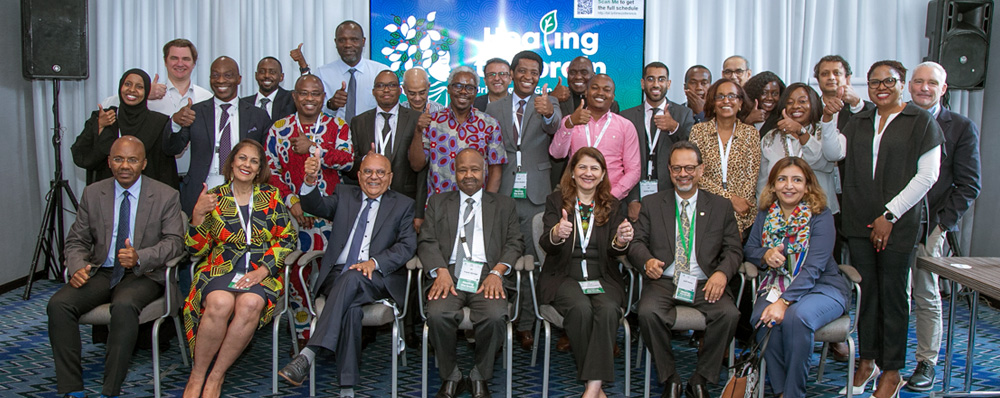The State of Mental Health Globally
The Brain and Mind Institute (BMI) at the Aga Khan University recently hosted the “Healing the Brain: Bridge the Gap in Low and Middle-Income Countries (LMICs)" conference, in Nairobi, Kenya, from 15th to 17th November 2023. According to the World Health Organization, 25% of the East African population is experiencing mental health concerns. Depression and anxiety are the most common mental health conditions affecting 10 percent of the population. This burden is glaringly evident in Kenya, ranking
fifth in Africa for depression cases, with over 1.9 million people involved and a global suicide rate standing at
114th. The economic toll is staggering, estimated at
62.2 billion shillings, covering medical expenses, productivity losses, and premature deaths attributed to mental health conditions. Mental health conditions cost the global economy $1 trillion annually, with projections soaring to $6 trillion by 2030.
The rising cost of mental health faces additional barriers and challenges, including stigma, discrimination, and social exclusion, which prevents access to health care, human rights violations, stressful work conditions and environments such as work overload, limited awareness at the community level, and inadequate financial and human resources and low social, economic status among families. Further, stigma impedes treatment-seeking behaviours.

Why a Global Conference
In response to this crisis, Kenya has been taking proactive steps, including establishing and adopting recommendations of the
Mental Health Taskforce set up by the Ministry of Health in 2019. An essential action item fostering dialogue among experts on the state of mental health in the country is to inform interventions and solutions.
Addressing this need, the BMI at Aga Khan University has emerged as a crucial knowledge partner for the Government in implementing the task force recommendations on research, knowledge, and advocacy. The inaugural global brain health conference strategically brought stakeholders together to frame solutions for mental health in low- and middle-income countries. The event brought together over 300 delegates, 50 mental health experts, neuroscientists, researchers, sociologists, anthropologists, and various neuroscience and mental health exhibitors to explore innovative solutions and strategies to promote brain health LMICs.

Conference Highlights
At the conference opening, Prof. Zul Merali, the Founding Director of the Brain and Mind Institute, reiterated BMI's commitment to achieving the vision of a healthy brain and healthy world. “Mental health is the foundation for thriving societies, yet the gap remains wide. We are here today as advocates for millions suffering in silence. Let us embrace the notion that all countries are developing countries regarding mental health and wellness. It is a new universal concern and demands our unwavering collaboration," he said.
Brain health is indeed an investment in our wealth. It is central to our overall health and well-being, enabling us to participate fully in society. Investing in the mental health of citizens is the most significant investment worldwide countries can make in advancing individual and national development goals. AKU President
Dr. Sulaiman Shahabuddin observed, “If we can identify cost-effective interventions for priority conditions; if we can strengthen multisectoral promotion and prevention for all; if we can reshape social and institutional environments to support good mental health; if we can seize on the opportunities created by digital technology – then we can spare individuals tremendous suffering. And we can spare societies the tremendous loss of human capital and productivity that result from unprevented, undiagnosed, and untreated mental health conditions."
The Brain Health Conference lived to its aspiration of creating hope, as observed by Prof Salim Virani, Vice Provost, Office of Research and Graduate Studies, Aga Khan University. "Universities are institutions of learning and research and create hope. The element of hope embodies the inspiration behind establishing the Brain & Mind Institute at Aga Khan University. We need to develop contextual knowledge to inform intervention in mental health. We need collaborations between the global north and global south stakeholders to enrich the solutions. Let us seek to improve education to address stigma and advance research and delivery for all the people depending on us for these solutions. Let's act for this."

Culture, Community, and Financial Backing Vital Elements in Mental Health Care Design and Delivery
With the realization that addressing brain health comes down to adopting a multi-disciplinary approach to healthcare and investment at a personal and financial level, delegates deliberated on concerted actions to address mental and brain health. They will emerge with a white paper on global investment in brain health to share the deliberations with the public.
There is consensus on diversifying funding for mental health. The Government of Kenya has put in place measures to initiate this. "We often focus on technical expertise and service delivery and forget about enablers of access to health left out of the budgeting cycles. We are now deliberate about moving to at least a 15% budget allocation to ensure the mental health agenda is carried forward and collaborating with partners to establish strategies to bridge the gap. Our first Ministerial Case in 2021 provided evidence of the long-term benefits of investing in mental health. We have seen that investing in mental health will reap huge social and financial benefits for our country. We need research to inform global south interventions. We need domestic financing to drive priority research issues to inform policy formulation and implementation in public health," said
Dr. Sultani Matendechere, the Deputy Director General of the State Department for Public Health and Professional Standards at the Ministry of Health.
Recognizing that a lack of knowledge and under-resourced healthcare systems contribute to stigma, The Brain and Mind Institute understands the urgent need to raise awareness and understanding of mental health issues among families, caregivers, healthcare professionals, and the wider community. In steadfast collaboration with our partners, we remain dedicated to addressing these concerns through research and education. We recognize and appreciate that together, we can make a meaningful difference in mental health awareness and advocacy. “This inaugural conference seeks to begin these critical conversations and bring on board partners across the board to journey with BMI in achieving our vision of a healthy brain and healthy world by putting in measures that culminate in bringing the right care at the right time to the right place," said
Professor Lukoye Atwoli, Deputy Director at the Brain and Mind Institute. “Together, we will go far."
BMI's vision has been clear from the onset: to bridge the gap in access to quality brain health and education. This aspiration was witnessed throughout the conference, as observed by Dr. Samim Hasham, Associate Director of BMI East Africa. “Brain health experts – researchers, clinicians, and related professionals discussed how to build awareness about the brain's lifelong ability to improve and the practical implications of better brain health. Together, with open minds and a spirit of shared purpose, we explored creative approaches, exchanged knowledge, and fostered collaborations that can make a real impact."

Beyond the Conference
Delegates and attendees pledged to champion mental and brain health as a human right and advocated for laws supporting this aspiration.
The Nairobi Statement on Brain Health emerged as a living document inspiring collective action globally for mental health and wellness. It emphasizes brain health as a human right, calls for increased resource allocation, swift action, a comprehensive approach across the spectrum, enhanced professional training, prioritized research, and critical advocacy.
The conference facilitated the exchange of ideas among global delegates and provided a platform for learning. Dr. Frank Njenga, Psychiatrist and Founder of the Chiromo Hospital Group, commended BMI for advancing global mental health.
The conference called for evidence-based fundraising and demonstrated the pressing need to provide urgent solutions to present challenges. “As we fundraise, we need to demonstrate to donors the evidence that the right science and research protects their investment. We want to partner in designing programs that solve today's many problems. We hope these deliberations will culminate in knowledge that informs programming that brings solutions to different parts of the world," said
Mr Anders Thomsen, the UNFPA Representative to Kenya.
BMI and its partners remain steadfast, bringing hope as we pursue our vision of a healthy brain and healthy world inspired and spurred on by the insights from the conference. “No single institution will address all these challenges by themselves. We need to collaborate and be open to new ideas, to the wisdom and knowledge of the local communities, elders, and history of the land to inform interventions to advance brain health and wellness," observed Dr Carl Amrhein, Provost & Vice President Academic, Aga Khan University.
The conference aimed to exchange cutting-edge research in brain and mental health, raise awareness of LMICs' brain health challenges, facilitate collaboration among experts, identify innovative solutions for improved care and research, and promote integration of brain health into healthcare systems.
Visit our conference webiste or follow the links below to access the conference resources:

